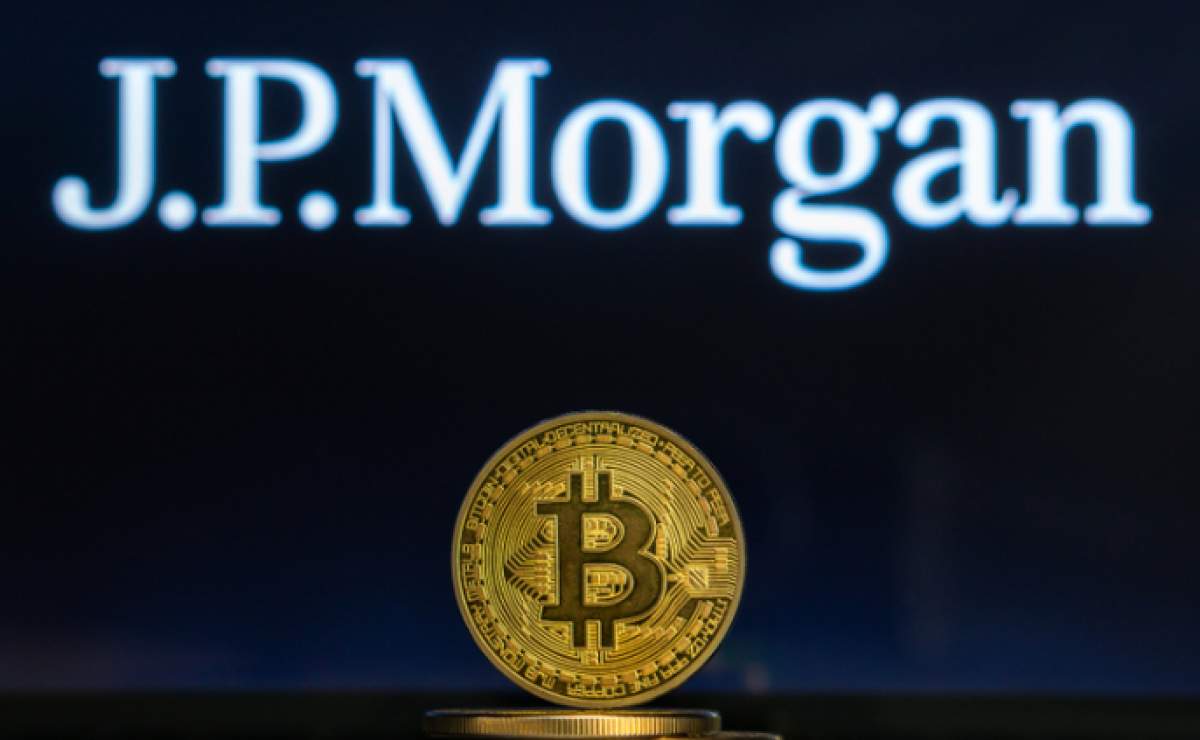JPMorgan Quietly Opens the Door to Bitcoin-Backed Lending
05.06.2025 15:00 1 min. read Alexander Stefanov
In a move that signals changing tides in traditional finance, JPMorgan is preparing to accept Bitcoin ETF holdings as collateral for loans—starting with BlackRock’s iShares Bitcoin Trust, according to insiders familiar with the plan.
The initiative reflects a broader shift within the bank, where regulated crypto products are beginning to earn treatment once reserved for stocks or real estate. What was once considered too risky is now being evaluated under more familiar financial frameworks.
This development isn’t happening in isolation. The bank is reportedly planning to integrate crypto-linked assets into the financial profiles of its wealth clients, potentially boosting their credit access and liquidity options.
The pivot is especially notable given CEO Jamie Dimon’s vocal disdain for Bitcoin in the past. Though he remains skeptical, Dimon has conceded that the bank will support client demand—even if it’s for assets he personally doesn’t endorse.
Meanwhile, JPMorgan’s blockchain arm—now rebranded as Kinexys—is steadily expanding its role in institutional digital finance.
The bank’s latest strategy appears to be less about headlines and more about quietly positioning itself for the next phase of asset-backed finance, with crypto now firmly on the table.
-
1
Bitcoin Shouldn’t Be Taxed, Says Fund Manager
07.07.2025 9:00 2 min. read -
2
Bitcoin Enters new Discovery Phase as Profit-Taking Metrics rise and outflows dominate
06.07.2025 8:00 2 min. read -
3
Altcoins Gain Momentum as Bitcoin Dominance Drops to 61.6%
17.07.2025 15:30 2 min. read -
4
U.S. Lawmakers Target El Salvador With Crypto Sanctions Plan
10.07.2025 15:00 2 min. read -
5
Strategy’s $60 Billion Bitcoin Portfolio Faces Mounting Risks, CryptoQuant Warns
10.07.2025 16:36 3 min. read
Elon Musk’s SpaceX Moves $150M in Bitcoin
SpaceX has moved 1,308 BTC—worth roughly $150 million—to a new wallet address, marking its first on-chain activity in more than three years.
Here’s When the Bitcoin Cycle May Peak, Based on Past bull Markets
According to a new chart shared by Bitcoin Magazine Pro, the current Bitcoin market cycle may be entering its final stretch—with fewer than 100 days remaining before a potential market top.
Bitcoin Price Prediction: $130K in Sight After ‘Crypto Week’ Boost
Bitcoin (BTC) is once again hovering near its all-time high today as trading volumes have jumped by 13% in the past 24 hours upon breaking the $119,000 barrier, favoring a bullish Bitcoin price prediction. The top crypto has booked gains of 16% in the past 30 days and reached a new record at $123,091 earlier […]
Support Test or Breakout Ahead? Bitcoin Hovers at Key Decision Zone
Bitcoin is consolidating around $119,000 after last week’s all-time high above $123,000.
-
1
Bitcoin Shouldn’t Be Taxed, Says Fund Manager
07.07.2025 9:00 2 min. read -
2
Bitcoin Enters new Discovery Phase as Profit-Taking Metrics rise and outflows dominate
06.07.2025 8:00 2 min. read -
3
Altcoins Gain Momentum as Bitcoin Dominance Drops to 61.6%
17.07.2025 15:30 2 min. read -
4
U.S. Lawmakers Target El Salvador With Crypto Sanctions Plan
10.07.2025 15:00 2 min. read -
5
Strategy’s $60 Billion Bitcoin Portfolio Faces Mounting Risks, CryptoQuant Warns
10.07.2025 16:36 3 min. read


